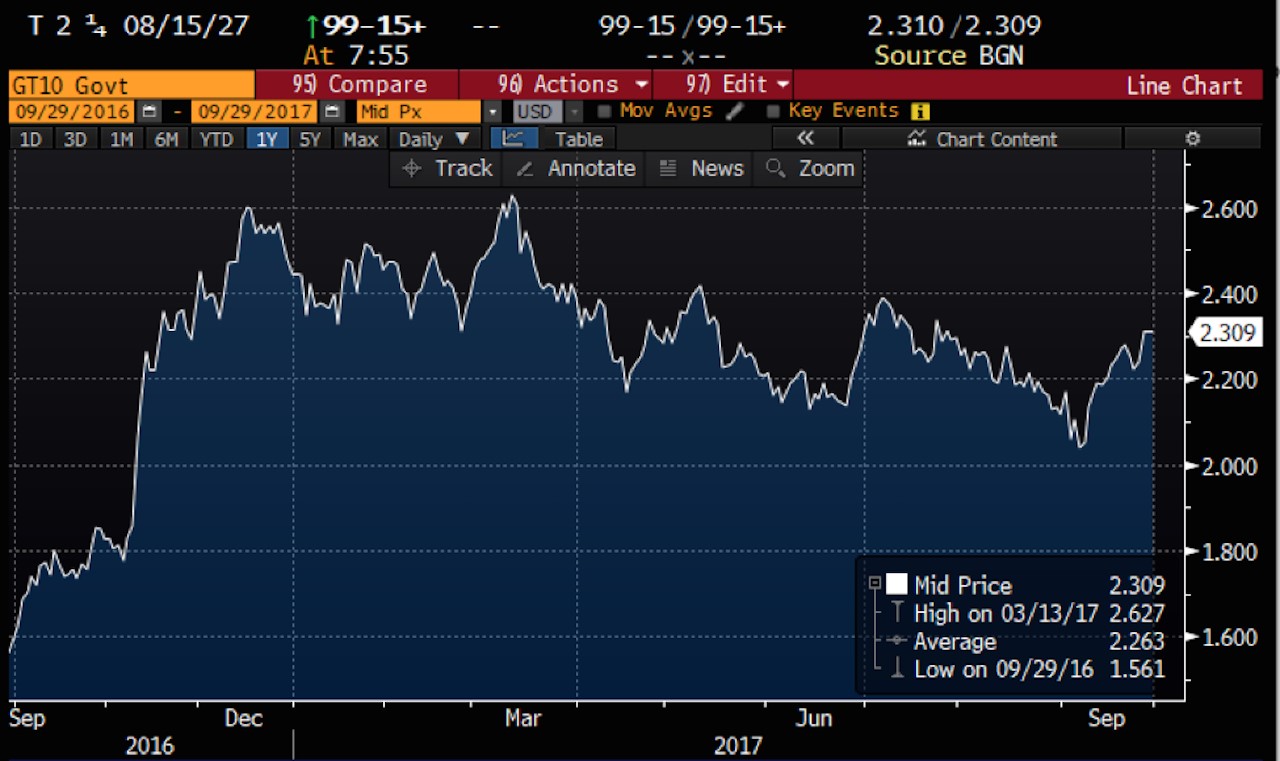What if Trump lowers taxes but interest rates rise?
The economic and political headlines this week are pointing to the possibility of lower taxes for businesses and families and higher interest rates on mortgages. What does this mean?
Ultimately, these would be good signs for economic growth, and in turn, good for the housing market, even if there may be some bumps along the way. Let's take a look at each.
Trump's tax plan big on hopes, low on detail
President Trump's tax reform proposal announced Wednesday sets the stage for a major reduction in corporate taxes, larger deductions for working families and the elimination of other taxes Republicans have long hoped to crush, such as the estate tax on the ultra wealthy. The proposal, while lacking details needed to truly analyze, does have high-level elements that would be a boon to business and economic growth.
Released in a speech in Indiana, Trump's plan sketched out a range of tax changes — including lower corporate taxes, incentives for business investment, fewer individual income tax brackets and larger deductions for working-class and middle-class families.
Under the Republicans' plan, the corporate tax rate would fall to 20% from 35%. Personal income tax rates would be set at 12 percent, 25 percent, 35 percent and an undetermined higher rate for the most wealthy Americans. In addition to these new brackets, Trump's plan would see standard deductions increase, along with other common deductions.
Republicans claim the new framework would result in lower taxes for working families. In his speech, Trump called his plan a "middle-class miracle." However, Democrats fired back that the lower tax rates would benefit the wealthy most. Critics also pointed out the White House has not specified the income levels for the newly proposed tax brackets or any detail around a proposed increase in child tax credits. The lack of detail makes the plan difficult to analyze.

Still, Wall Street seemed to approve as markets rallied on the news and major business advocacy groups cheered the plan this week. Gary Cohn, a Wall Street financier and Trump economic adviser, says the plan will result in annual GDP growth above 3 percent, which would help offset lost revenue from lower taxes. Some analysts believe the cuts would cost the government more than $2 trillion.
Cohn said the cuts won't increase the budget deficit.
“We think we can drive a lot of business back to America, we can drive jobs back to America, we can make ourselves very competitive,” Cohn told CNBC in a live interview. “We think we can pay for the entire tax cut through growth over the cycle.”
For mortgage lenders and real estate professionals, the tax framework carries some special interest. Trump's proposal to double standard deductions would make the itemized mortgage-interest deduction less useful to many middle-class Americans. As a result, the National Association of Realtors released a statement criticizing the plan.
However, lower taxes on business and families that led to economic expansion would be good for economic health overall. Nothing supports the housing market better than a growing, healthy economy — mortgage interest deduction or not.
The Trump tax plan now faces a long road in Congress as partisanship will almost surely force Republicans to pass their proposals with a thin majority and little support from across the aisle.
And what about rates?
This week also further increased confidence that the Federal Reserve will raise interest rates in December. Second quarter GDP growth was revised upward to 3.1 percent, a strong number compared to 1.2 percent in the first quarter, and one that indicates economic expansion is increasing.
The growth is being fueled by strong consumer spending, stable employment and increasing business investment.
On Friday morning, the personal consumption expenditure index (PCE) came in at 0.2 percent, missing expectations of 0.3 percent. Some analysts believe the small miss could be a result of reduced spending following Hurricane Harvey's disruption along the Gulf Coast. This indicator is a barometer on inflation and has been one of the Fed's most watched metrics.
With economic growth and employment proving stable, despite a small miss on PCE expectations, analysts continue to believe a rate hike is coming. Fed Chair Janet Yellen has consistently become more hawkish this year as the central bank has begun to unwind its massive crisis-era balance sheet and continues to suggest a December rate hike is likely.
In a speech this week, Yellen acknowledged inflation growth hasn't unfolded as quickly as Fed officials forecasted. Still, she reiterated the need to normalize rates to match a more normal economy.
The bond markets have taken all of this in stride with a bias towards higher rates. The 10 Year Treasury is currently trading at 2.31 percent (see chart). This is toward the higher end of the broader range of 2.05 to 2.4 percent. We need to watch this closely as any sustainable move north of 2.4 percent could push the market closer to its year high of 2.63 percent.

All of this depends on the next waves of data this fall and any geopolitical risks, such as escalating tensions with North Korea. More geopolitical unrest or natural disasters affecting economic growth could drive the markets back towards 2 percent.


